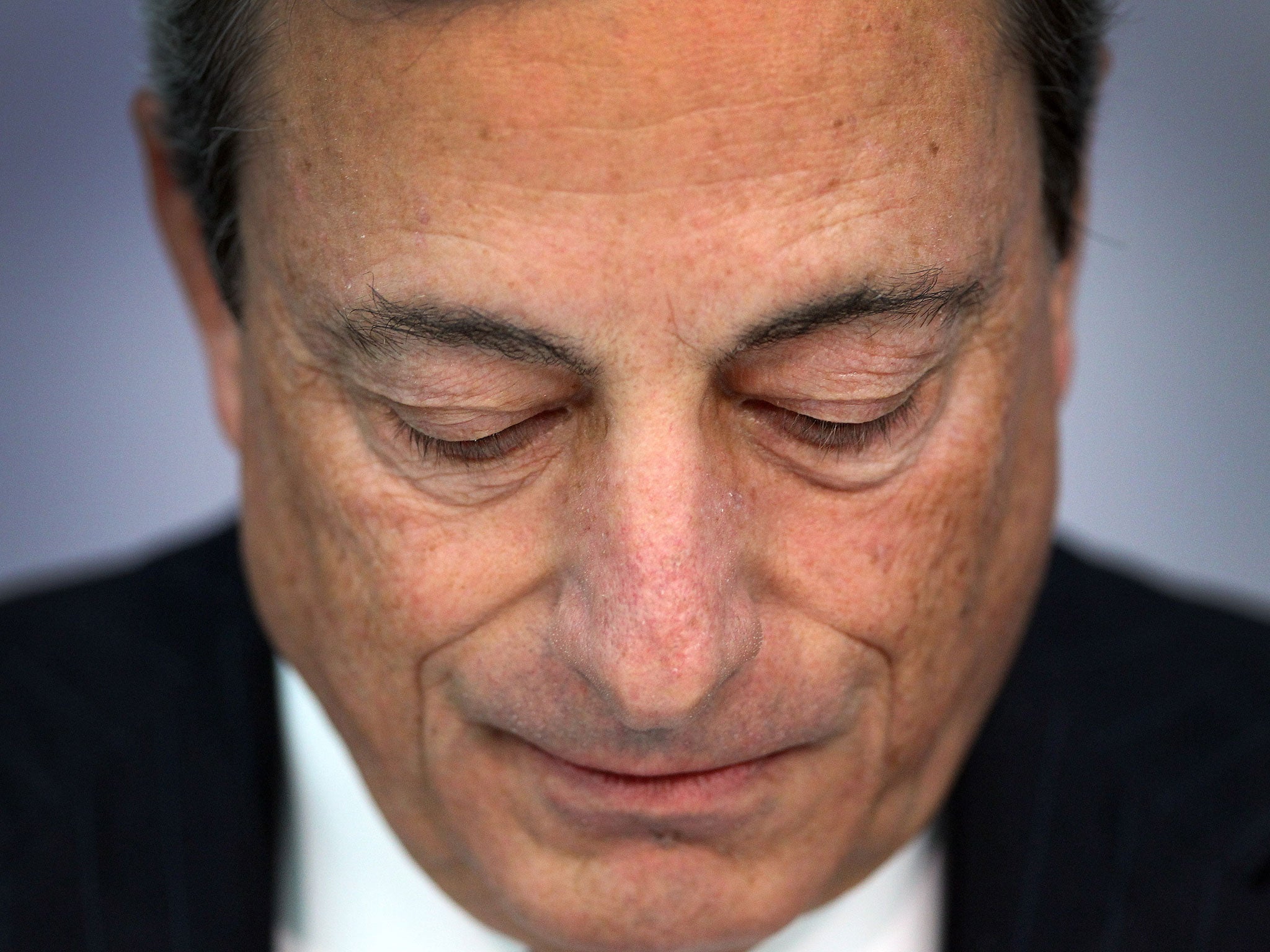The eurozone’s recovery has petered out after official data yesterday showed that the single currency bloc’s economy failed to grow in the second quarter.
The performance was worse than analysts had been expecting and ignited calls for the European Central Bank (ECB) to take serious action to bolster growth across the bloc and head off the risk of deflation.
The biggest drag came from the dominant German economy, which unexpectedly contracted by 0.2 per cent in the second three months of the year. Economists said Germany’s performance was probably affected both by the escalation of the Ukraine crisis and the mild winter, which pulled construction forward to the first quarter of the year.
Another grave disappointment was France, which failed to produce any expansion for a second quarter in a row. The French Finance Minister Michel Sapin admitted that “growth has broken down in Europe and France” as he halved France’s official 2014 growth forecast to 0.5 per cent and said Paris would not now meet its European Commission-mandated goal of reducing the budget deficit to 3.8 per cent of GDP.
Official data had already shown that Italy contracted by 0.2 per cent, putting the third-biggest economy in the 18-member eurozone into another recession – its third in six years.
The weak data sent German 10-year bond yields below 1 per cent for the first time ever yesterday, exacerbating traders’ fears of stagnation. French long-term debt yields were down too.
Eurostat also confirmed that eurozone consumer price inflation fell to just 0.4 per cent in July – the lowest level since 2009 and well below the ECB’s official 2 per cent target. The euro strengthened against the dollar by a third of a cent in trading yesterday.
“The ECB needs to implement further policy action – probably in the form of full-scale quantitative easing – to try to bring the euro down and reignite the recovery,” said Jonathan Loynes of the Capital Economics consultancy.
“Given that the economy still has a lot of slack and inflation is already at low levels, signs of a stalling recovery strengthen the case for more monetary stimulus,” said Nick Kounis, an economist at ABN Amro bank in Amsterdam.
“It’s time the ECB took control and we got the real deal, instead of the weaker measures unveiled in June,” said Richard Barwell, European economist at Royal Bank of Scotland.
Two months ago the ECB turned its main deposit facility for banks negative in order to encouraging lending. The central bank also established a scheme to provide continental banks with cheap funding and said it stood ready to purchase assets if the outlook did not improve.
The eurozone emerged from its 24-month recession in the second quarter of 2013 but growth since then has failed to pick up. The bloc expanded by just 0.2 per cent in the first three months of the year, before the second quarter’s stagnation.
There was some better data from outside the core eurozone nations. Spain grew by 0.6 per cent and the Netherlands expanded by 0.5 per cent following a first-quarter contraction of 0.4 per cent. Portugal grew by 0.6 per cent after a similar fall in the first three months of the year.
Subscribe to Independent Premium to bookmark this article
Want to bookmark your favourite articles and stories to read or reference later? Start your Independent Premium subscription today.


Join our commenting forum
Join thought-provoking conversations, follow other Independent readers and see their replies